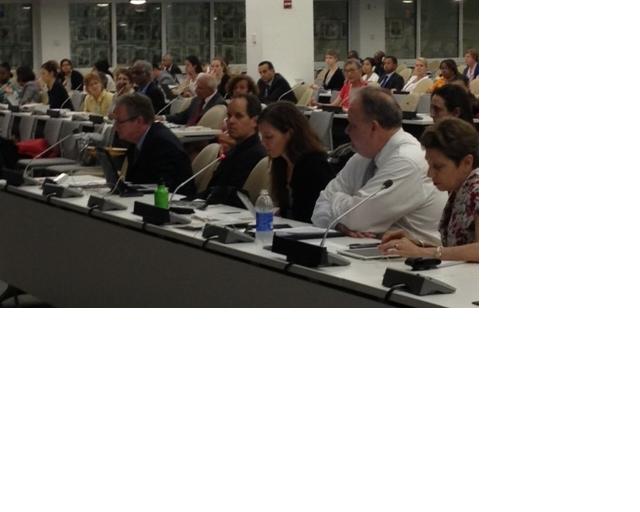NEW YORK (June 20, 2013) – On June 18th, civil society organizations met in New York to discuss the Special Event on MDGs, scheduled to take place on September 25th during the 68th session of the UN General Assembly. Co-Facilitated by Ambassadors Kingsley Mamabolo of South Africa and Anne Anderson of Ireland, the dialogue aimed to investigate civil society perspectives on MDG progress, as well as prepare for the drafting of a pointed, powerful outcome document from the Special Event to influence the Post-2015 agenda.
WEDO’s Eleanor Blomstrom and representatives from CIVICUS, World Vision, UN Foundation and the International Chamber of Commerce opened the discussion, responding to 3 key issues:
1. MDG progress and achievements to date
2. Ways to accelerate MDG achievement
3. The overall message of the Special Event on the MDGs
Blomstrom opened by pointing out that acceleration of the MDGs is closely linked to the Post-2015 process, as issues on the agenda at the June Open Working Group (OWG) on the new Sustainable Development Goals, such as education, health, population dynamics and decent employment are also some of the key issues impacting the achievement of the MDGs. She then reflected upon some of the shortcomings that have stalled MDG progress. She pointed to data showing that gender equality has been a huge accelerator for development—but that representation in decision making in all sectors and levels, unfortunately, has been highly inequitable.
“When women are not at the table, their issues are not reflected,” Blomstrom said while discussing the ways the MDGs have failed to take a rights-based perspective and have therefore continued to promote gender inequalities. She argued that the MDGs had oversimplified the issues, thereby making the goals too narrow in scope. Because the goals were reviewed in isolation, she said, the interactions between them were not fully parsed and considered.
Thus, Blomstrom recommended a more holistic approach as the UN begins to accelerate the MDGs with 2015 looming. For example, issues such as access to water, the economics and politics of land grabbing and the effects upon maternal health ought all to be viewed in relation to each other. Blomstrom said partnerships, disaggregated data, and integrationist thinking is necessary if the attacks upon the causes, not merely the symptoms, of inequalities are to be continued after 2015.
After the contributions by civil society, the co-facilitators briefly shared their response and next steps. First and foremost, the outcome document for the September 25th Special Event will be short – only two to three pages, with approximately two-thirds focused on the MDGs and one-third on Post-2015. While several speakers had requested a role for non-governmental actors in the upcomingevent, the co-facilitators indicated that this would be challenging. However,they remained open to ideas and conversation with Member States and other stakeholders on what to recommend to ‘inject a sense of urgency’ for meeting the existing MDGs.



